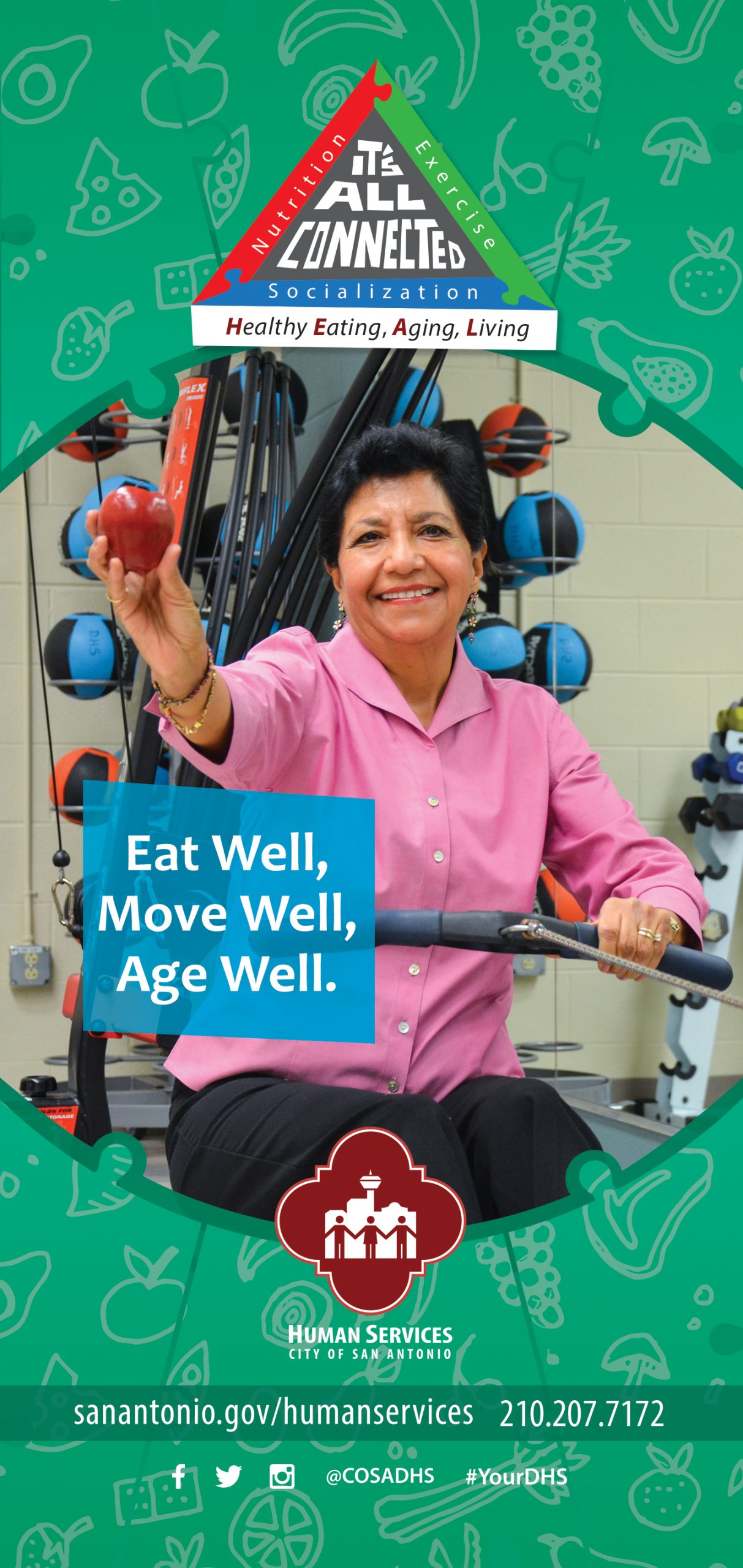
The Texas Congregate Meal Initiative (TCMI), a research-to-practice translational effort funded by the Administration for Community Living’s Innovations in Nutrition Program and Services (INNU) grants and conducted by Nandita Chaudhuri in partnership with Texas Health and Human Services Commission, aimed to improve the well-being of older Texans by modernizing the local congregate nutrition programs. As the month of May celebrates older Americans and raises awareness about issues related to aging, key findings from this research are well poised to inform the Texas aging network and policy makers to improve the lives of seniors across Texas.
Congregate meal programs are food-centric nutrition programs established by the federal government to reduce hunger, malnutrition, food insecurity, and social isolation in seniors. As an initial entry point into the community-based aging network services, these meals are served in senior centers, churches, restaurants, senior housing, and other community settings as critical platforms that could be leveraged innovatively to facilitate senior well being.
Although the senior population has been on the rise since 2005, congregate meal program participation has steadily declined across the nation. Most of the nearly 200 Texas congregate senior nutrition providers have also suffered from participation decline and lack of innovative thinking to facilitate senior engagement in the programs. The pandemic additionally exposed the pernicious effects of food insecurity and social isolation among the vulnerable seniors. Modernizing the programs through multi-faceted innovations thinking became an urgent need.
Chaudhuri, a research scientist in the college’s Public Policy Research Institute (PPRI), and her research team (Laila Alvi, Zack Brattin, Paul Busch, Lisa Halperin, Anthony Jackson, Linda Netterville, Ashleigh Williams) led a $1 million three-year research project from 2019 to 2022 aimed at rethinking, innovating and modernizing the congregate meal programs across Texas. This research has empowered local Texas nutrition providers to ingeniously plan and test innovative, low-cost, and replicable congregate meal programs in both urban and rural settings to better serve today’s older adults, increase their participation in the programs, and impact their health outcomes.
By modernizing these congregate nutrition programs, Chaudhuri and her colleagues have been able to improve older Texans’ well being, social integration, food security, and satisfaction and participation. Outcomes evaluation data from the sites show that 83 percent of the participating clients reported increased social connection, 73 percent reported that their general well being improved, and 73 percent reported that participating in the pilots helped them feel more food secured.
Additionally, 70 percent of the clients stated that participation in the programs helped improve their psychological well being and made them feel less sad and anxious. Sixty two percent of the clients rated the program quality as excellent. The project also helped increase business acumen, innovations thinking, community partnership building, marketing strategies and program developmental skills of professional staff implementing the programs in 16 Texas Area Agencies of Aging (AAA) regions.

A key finding from the TCMI research is that seniors and community focused marketing strategies and tools crucially help increase the reach and visibility of these congregate meal programs and create an awareness of the program benefits. A few congregate meal sites internalized this information and produced an innovative promotional video that includes recommended marketing strategies and tools from Chaudhuri’s work.
Another program created marketing material that used seniors in their programs as volunteer ambassadors and models. Other marketing tools used for program promotions were flyers, handouts, billboards, special events, program websites, mailings, radio and television ads, and social media platforms. Eighty seven percent of program staff reported improved program visibility resulting from TCMI marketing tools, tips and training.
More than 80 percent of the clients reported being motivated to participate by the marketing efforts. Of the various strategies, networking with other community agencies proved most helpful in increasing the congregate program reach and value.
Meaningful local community partnerships appreciably improved the impact of the congregate meal pilot programs. Trained in partnership building by the TCMI project, the pilot sites partnered with local schools, chefs, dietitians, industries, insurance agents, healthcare providers, local government, youth groups, restaurants, food banks, faith based groups, local media etc. These community partners provided in-kind and financial donations, space, volunteers for the innovative activities, technology and healthcare equipment, as well as teachers to lead the creative arts, craft, cooking and technology classes for the seniors. Ninety-eight of the pilot program staff strongly agree that the TCMI project’s community partnership training has benefited their pilots and overall networking.
As Chaudhuri stated, “Networking and strategic partnerships within the local communities have been a significant success element that both program managers and clients at the pilot sites repeatedly highlighted.”
Evaluation data shows that 85 percent of the pilot managers strongly agree that their community is more aware of the congregate meal program because of the TCMI pilot.
“The initial needs assessment conducted in 2019 revealed that lack of awareness was the most prevalent reason for older Texans to not participate in these much needed programs,” Chaudhuri explained. “Community awareness is a powerful indicator of success of the project. ”
Tools, how-to-guides, and learning collaborative curriculum developed by Chaudhuri’s team are now available for all congregate meal programs in Texas to use. Other helpful materials developed and implemented by participating programs include marketing tools, settings enhancement suggestions, program development resources, innovative activity plans, health and technology based program modules, and even access to the networking and relationship building strategies all leading to sustainability and replicability by programs across Texas.

